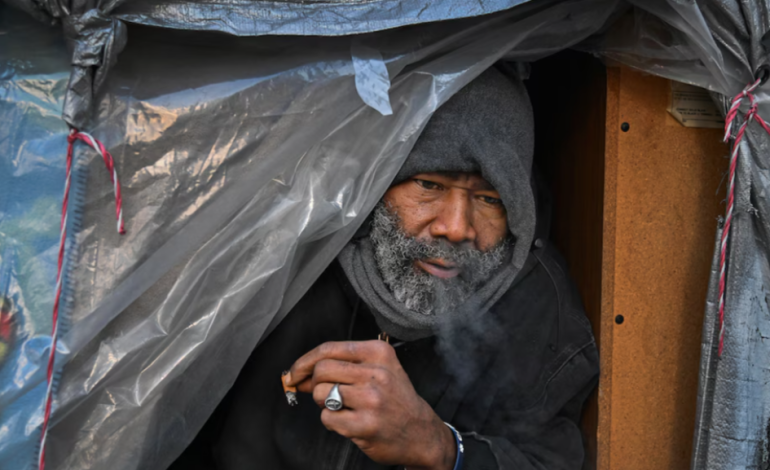The United States has seen an 18% increase in homelessness over the past year, according to the Department of Housing and Urban Development’s (HUD) 2024 Annual Homelessness Assessment Report.
This marks a record high, with over 770,000 individuals—approximately 23 out of every 10,000 Americans—experiencing homelessness on a single night in January 2024. The report attributes this surge to several intertwined factors, including skyrocketing housing costs, a reduction in pandemic-era aid, and challenges posed by an influx of migrants.
Despite the grim numbers, there is an opportunity for innovative and pragmatic solutions to address this escalating crisis.
The report identifies housing affordability as a critical issue, with rents having risen 20% from 2021 to early 2024. This has particularly affected families, with a 39% increase in family homelessness noted over the past year. Additionally, economic instability, stagnating wages, and a lack of sufficient resources in homeless services have compounded the issue.
The reduction in pandemic-related assistance, such as eviction moratoriums and emergency rental aid, has left many vulnerable individuals without a safety net. At the same time, certain cities have reported higher homelessness rates due to challenges in accommodating large numbers of new migrants.
Donald Trump, as president-elect, has emphasized the importance of tackling the homelessness crisis through a combination of economic growth initiatives and policies aimed at reducing housing costs. Advocating for increased affordable housing availability, Trump has argued that streamlined federal programs, coupled with local efforts, could provide more sustainable solutions.
“We must prioritize ensuring every American has access to safe and affordable housing,” Trump has said.
The president elect suggested that revitalizing urban areas and expanding housing vouchers are key to making progress.
Amid the challenges, there are examples of success. Homelessness among veterans has decreased by 8%—a testament to the effectiveness of focused federal programs like HUD-VASH, which provides stable housing for veterans. This success demonstrates the potential for targeted approaches to yield measurable results in reducing homelessness nationwide.
Additionally, cities like Dallas and Los Angeles have made notable progress by investing in housing-first initiatives and comprehensive care programs. These examples highlight the value of bipartisan collaboration and innovative policy-making.
With input from the Washington Post, the Associated Press, and FOX News.








